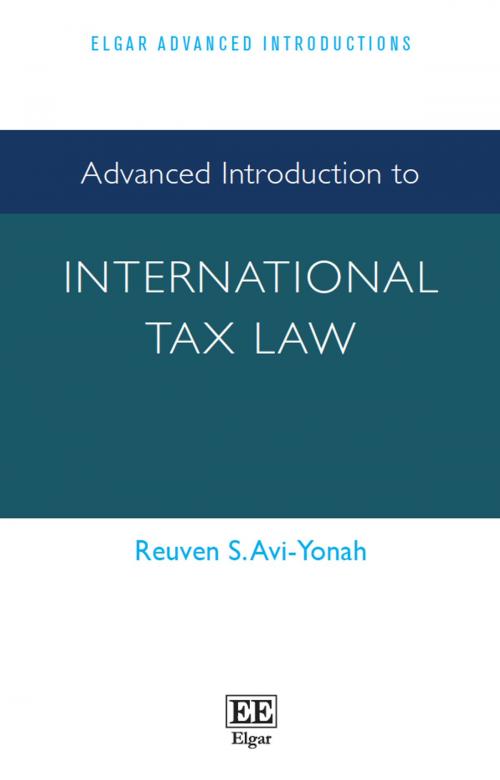Advanced Introduction to International Tax Law
Nonfiction, Reference & Language, Law, Taxation, International| Author: | Reuven S. Avi-Yonah | ISBN: | 9781781952320 |
| Publisher: | Edward Elgar Publishing | Publication: | December 15, 2009 |
| Imprint: | EE | Language: | English |
| Author: | Reuven S. Avi-Yonah |
| ISBN: | 9781781952320 |
| Publisher: | Edward Elgar Publishing |
| Publication: | December 15, 2009 |
| Imprint: | EE |
| Language: | English |
Advanced Introduction to International Tax Law provides a concise yet wide-ranging overview of the key issues surrounding taxation and international law from a world authority on international tax.Systems of taxation deviate between jurisdictions, and contrasting, income based levies on both individuals and enterprises are implemented depending on the nature or source of income. This dynamic book explores the nuances of the varying taxation systems, offering expert insight into the scope, reach and nature of international tax regimes, as well as acting as an excellent platform for understanding how the principles of jurisdiction apply to tax and the connected tools that are used by countries in imposing taxes.Key features include:• defines and discusses the main types of jurisdiction to tax• delineates the source of income that is crucial for taxing non-residents and foreign tax credit• explains in depth both inbound and outbound taxation on both passive and active income• discussion of transfer pricing, a variant of source-based taxation that lies at the heart of modern efforts to tax corporations at source• explains how the above elements are influenced by tax treaties and looks at the future of the international tax regime.Composed of succinct but highly informative chapters, this engaging introduction will prove to be an essential platform for students of international tax law, as well as for scholars with a particular interest in tax law, international business law and international commercial law.
Advanced Introduction to International Tax Law provides a concise yet wide-ranging overview of the key issues surrounding taxation and international law from a world authority on international tax.Systems of taxation deviate between jurisdictions, and contrasting, income based levies on both individuals and enterprises are implemented depending on the nature or source of income. This dynamic book explores the nuances of the varying taxation systems, offering expert insight into the scope, reach and nature of international tax regimes, as well as acting as an excellent platform for understanding how the principles of jurisdiction apply to tax and the connected tools that are used by countries in imposing taxes.Key features include:• defines and discusses the main types of jurisdiction to tax• delineates the source of income that is crucial for taxing non-residents and foreign tax credit• explains in depth both inbound and outbound taxation on both passive and active income• discussion of transfer pricing, a variant of source-based taxation that lies at the heart of modern efforts to tax corporations at source• explains how the above elements are influenced by tax treaties and looks at the future of the international tax regime.Composed of succinct but highly informative chapters, this engaging introduction will prove to be an essential platform for students of international tax law, as well as for scholars with a particular interest in tax law, international business law and international commercial law.















